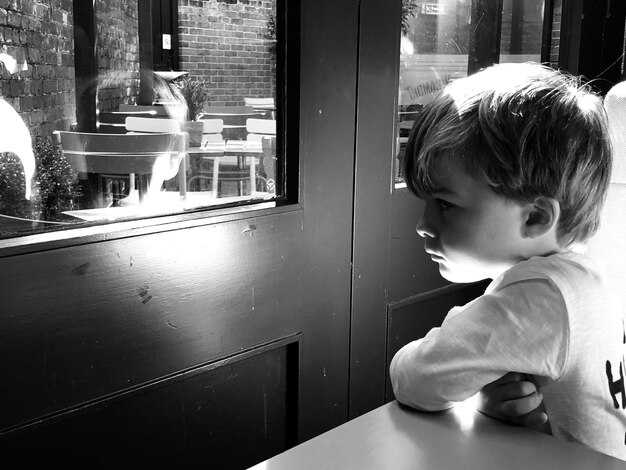Etwa 30 % der Paare – ob zusammen oder verheiratet – berichten von irgendeiner Form von Untreue, und diese Zahl spiegelt nur wider, was offengelegt wurde. Nachdem ich Beziehungen eingehend untersucht habe, kann ich nun erkennen, welche Partnerschaften anfälliger für Betrug sind, und das möchte ich hier behandeln. Um ehrlich zu sein, erwarte ich nicht, dass diese Botschaft viral geht – es ist schwer, Menschen, die noch nie betrogen haben, davon zu überzeugen, ein Gespräch darüber zu führen, wie man es verhindern kann; sie denken oft: “Das wird mir nie passieren.” Das dachte ich auch, und doch war ich derjenige, der das am meisten brauchte. Früh in meiner Ehe betrog ich meine Frau, ein Fehler, den ich tragischerweise bereue. Es wird immer Teil meiner Geschichte sein, und ich werde die Konsequenzen dieser Entscheidung für den Rest meines Lebens tragen. Aber ich weigere mich, zuzulassen, dass diese Vergangenheit den Rest meiner Zukunft bestimmt. Seit Jahren arbeite ich unermüdlich daran, unsere Ehe zu reparieren, mich selbst weiterzuentwickeln, Vertrauen wieder aufzubauen und einen Raum der Validierung und Sicherheit zu schaffen, in dem meine Frau von dem, was ich getan habe, heilen kann. Viele Leute fragen: “Warum sollte man sich von jemandem beraten lassen, der betrogen hat?” – und ich verstehe diese Reaktion. Dennoch werde ich nicht aufhören, alles zu teilen, was ich darüber gelernt habe, wie man Verrat verhindert und emotionale Bindungen durch Ehrlichkeit, Verletzlichkeit und Intimität stärkt. Warum sollten Sie mir zuhören? Weil ich aus Erfahrung die Warnzeichen sowohl innerhalb einer Person als auch zwischen Partnern kenne. Ich erkenne Dynamiken, die eine Beziehung zum Scheitern prädestinieren, und ich möchte Menschen helfen, Probleme frühzeitig zu erkennen, damit sie vermieden werden können. Noch ein wichtiger Punkt, bevor wir fortfahren: Wenn ein Partner betrogen wurde, lassen Sie sich von niemandem sagen, es sei “zu 50 % Ihre Schuld” gewesen. Das war es nicht. Der Akt des Betrügens ist die Entscheidung des Betrügers – zu 100 % seine Entscheidung. Ich verstehe vollkommen, wie verheerend sich eine distanzierte Partnerschaft anfühlen kann. In vielen Fällen hat ein Partner um Nähe, Zuneigung und Intimität gebeten und wurde weggestoßen; ich verstehe die erschöpften Bemühungen, die lange vor dem Verrat unbemerkt blieben. Ich werde später noch ein paar liebevolle, aber harte Worte für diesen Partner haben, aber nichts davon löscht die Tatsache aus, dass Betrug die Verantwortung des Betrügers ist. Sie hätten gehen, sich scheiden lassen oder die Partnerschaft auf andere Weise beenden können – und Sie haben es nicht getan. Das muss man sich eingestehen. Wie können wir also Betrug verhindern? Ich glaube, die meisten Menschen nehmen sich nicht vor, jemanden zu betrügen – ich auch nicht, und die meisten Betrüger haben es auch nicht geplant. Das wirft die Frage auf: Warum passiert es so oft? Sind manche Menschen einfach nur egoistische Monster? Die Forschung unterstützt das nicht vollständig. Ich entschuldige Betrug nicht – er ist egozentrisch, unreif und schmerzhaft, und Betrüger verdienen nicht automatisch Vergebung. Mein Ziel ist es, aufzuschlüsseln, warum es passiert, damit wir es verhindern können. Auf individueller Ebene müssen Sie einen klaren moralischen Kompass und Integrität entwickeln – die Art von Charakter, die bedeutet, das Richtige zu tun, auch wenn niemand zusieht. Entscheiden Sie, wie Sie in festen Beziehungen, insbesondere in der Ehe, auftreten wollen. Den Bund zu schützen ist nicht passiv: Engagement bedeutet nicht nur, im selben Haus zu bleiben; Engagement ist eine fortlaufende Denkweise. Es bedeutet: “Deine Gefühle sind mir wichtig; dein Schmerz ist mir wichtig.” Es bedeutet Gleichberechtigung, gegenseitigen Respekt, zu lernen, wie man dem anderen das Gefühl gibt, priorisiert und wertgeschätzt zu werden, einander mit Liebe zu dienen und als Team zusammenzustehen. Sie schützen und priorisieren das, was Ihnen wirklich wichtig ist. Schützen wir also tatsächlich unsere Beziehungen? Um Ihre Partnerschaft zu schützen, müssen Sie darauf achten, in welche Situationen Sie sich begeben. Flirten Sie nicht und geben Sie sich keinen Fantasien über andere Menschen hin. Trinken Sie nicht wissentlich zu viel auf einer Reise, wenn Alkohol Ihre Hemmungen senkt. Suchen Sie keine Videos oder Online-Interaktionen, die Versuchungen schüren, und vertrauen Sie sich niemandem an, den Sie attraktiv finden, wie unglücklich Sie zu Hause sind. Vermeiden Sie Drogen, die das Urteilsvermögen beeinträchtigen, vermeiden Sie geheime Einzelgespräche mit jemandem des anderen Geschlechts, von dem Ihr Partner nichts weiß, und hören Sie auf, externer Aufmerksamkeit hinterherzujagen, so sehr Sie sich auch danach sehnen mögen. Die Leute fragen oft: “Wo ist die Grenze?” – “Es ist doch nur spielerisches Flirten” oder “Es ist doch nur ein Mittagessen”. Aber wenn Sie ehrlich sind, zeichnen sich Muster ab: Sie fangen an zu hoffen, dass er/sie sich erkundigt, ob Sie gegessen haben, oder Sie wünschen sich das gleiche Kompliment, das er/sie letzte Woche gegeben hat. Bewegen Sie sich nicht immer näher an die Linie heran und tun Sie dann überrascht, wenn Sie sie überschreiten. Seien Sie ehrlich zu sich selbst. Im Kern betrügen Menschen, weil sie etwas fühlen wollten. Das rechtfertigt die Tat nicht, aber unser Verhalten hat normalerweise einen Zweck. Wenn Sie herauszoomen und ehrlich hinsehen, können Sie sich fragen: Warum fühlt sich das Flirten mit dieser Person so berauschend an? Warum ist ihre Aufmerksamkeit so wichtig? Bin ich in meiner Beziehung wirklich erfüllt? Warum fühlt sich diese geheime Verbindung so wichtig an? Seien Sie nicht naiv – wenn Sie in einer Beziehung bleiben, aber nichts tun, um sie zu stärken, schwächen Sie sie. Wenn Ihre Beziehung in den Hintergrund geraten ist und Ihr Herz bei dem Lächeln eines Fremden schneller schlägt, riskieren Sie, sich auf eine Weise zu verhalten, die Sie sich nie vorgestellt haben. Sich zu anderen hingezogen zu fühlen ist normal, aber wenn Sie in einer festen Beziehung sind, müssen Sie und Ihr Partner entscheiden, was angemessen ist und was nicht. Dieses Gespräch zu vermeiden oder die Gefühle Ihres Partners in Bezug auf Grenzen abzutun, ist ein Warnsignal. Seien Sie nicht schockiert, wenn Sie fallen, wenn Sie Zeit damit verbracht haben, auf abschüssigen Hängen zu stehen. Emotionaler Betrug ist ein weiteres Gebiet, über das die Leute streiten. So erkennen Sie ihn: Wenn Sie Zeit oder Kommunikation mit jemand anderem verbergen, wenn Sie lügen oder Details darüber zurückhalten, mit wem Sie zusammen waren, wenn Sie sich schämen würden, wenn andere Ihre Nachrichten sehen würden, und wenn Sie eine tiefere emotionale Intimität mit dieser Person aufbauen, dann ja – das ist eine emotionale Affäre. Das macht Sie nicht automatisch unverbesserlich, und Sie können das Muster durchbrechen, aber es ist schwieriger, sobald die Aufregung und Fantasie Wurzeln schlagen. Oft beginnen Sie, sich die neue Person als Ihren Partner vorzustellen, und es wird bewusste Anstrengung – wahrscheinlich eine Beratung – erfordern, um zu verstehen, warum es angefangen hat. Ich habe einmal einen Pastor gefragt: “Wenn du der Teufel wärst, wie würdest du dich ausschalten?” Sie brauchen keine Religion, um den Punkt zu verstehen: Wo sind Sie anfällig für Einflüsse von außen? Was sind Ihre Schwachstellen – konfrontieren Sie sie, reden Sie darüber oder tun Sie so, als gäbe es sie nicht? Fragen Sie sich: Sind Sie wirklich der Monogamie verpflichtet, oder sehnen Sie sich insgeheim nach Erfahrungen außerhalb der Beziehung? Selbst wenn Sie die Monogamie bejahen, fühlen Sie sich chronisch einsam, emotional oder körperlich distanziert, verärgert, unerwünscht oder sexuell depriviert? Ehrlich über diese Gefühle zu sein ist gesund. Probleme entstehen, wenn Sie sie ignorieren, unterdrücken oder nicht aussprechen können, weil Sie sich schämen oder Angst vor Konflikten haben oder weil Ihr Partner kein sicherer Ort für Verletzlichkeit ist. Vor diesen Gefühlen wegzulaufen, lässt sie nicht verschwinden; sie werden an anderer Stelle mit größerer Wucht wieder auftauchen. Nennen Sie also, was Sie fühlen. Um eine Beziehung vor Untreue auf beiden Seiten zu schützen, kennen Sie sich selbst und bemühen Sie sich, Ihren Partner wirklich zu kennen. Sie können eine andere Person nicht kontrollieren, wenn sie sich entscheidet, ihre Prinzipien zu verraten, aber Sie können Ihrer Beziehung die besten Chancen auf gegenseitige Erfüllung geben, indem Sie lernen, wie sich Ihr Partner geliebt, wertgeschätzt und verbunden fühlt – und indem Sie diese Dinge absichtlich tun. So sieht Intimität in der Praxis aus. Probieren Sie diese Übung gemeinsam aus: Vervollständigen Sie den Satz “Damit ich mich meinem Partner nahe fühle, brauche ich...”, und hören Sie dann ohne Urteil zu. Seien Sie der sichere Ort für ihre Ehrlichkeit. Zum Beispiel: “Damit ich mich nahe fühle, muss ich mich respektiert fühlen; ich muss wissen, dass ich mich auf dich verlassen kann; ich muss mich priorisiert und begehrt fühlen; ich muss wissen, dass du dich um meine Emotionen kümmerst; ich muss das Gefühl haben, dass wir im selben Team sind; ich brauche emotionale und körperliche Intimität.” Vielleicht antwortet Ihr Partner anders: “Ich brauche mehr Autonomie; ich brauche Raum und Unabhängigkeit; ich brauche weniger ungesunde Konflikte; ich darf nicht für die Gefühle eines anderen verantwortlich gemacht werden.” Das sind legitime Bedürfnisse. Das Versäumnis, die Bedürfnisse des anderen zu verstehen oder zu priorisieren, verursacht zwar nicht direkt Betrug, führt aber zu Distanzierung – und unbeachtet wachsen Distanz und ungelöste Konflikte. Starke Beziehungen bleiben nie mühelos; sie erfordern immer Arbeit. Der natürliche Trieb geht in Richtung Egozentrik und Selbstgefälligkeit, der leichte Zug in Richtung Faulheit. Um dieser Strömung zu widerstehen, müssen beide Partner gemeinsam kämpfen: Nehmen Sie sich Zeit füreinander, seien Sie aufmerksam, führen Sie mutige Gespräche, fördern Sie Ehrlichkeit und lieben Sie einander auf die Art und Weise, die für sie am bedeutungsvollsten ist. Bringen Sie regelmäßig Spiel und Spannung ein. Ja, es erfordert Anstrengung – lohnende Dinge tun das. Wenn Sie abdriften, weil Sie zu Hause nach Aufmerksamkeit und Bestätigung hungern, erklärt das, warum Aufmerksamkeit von außen verlockend sein kann – es entschuldigt es nicht, aber es hilft, es zu erklären. Andere Male, selbst wenn Ihr Partner Sie gut behandelt, machen es ungelöste Wunden aus Ihrer Vergangenheit unsicher, die Schutzmauer fallen zu lassen; Sie sabotieren Nähe, weil Verletzlichkeit Ihnen Angst macht. In solchen Momenten laufen Sie vielleicht nicht auf jemand anderen zu, sondern von sich selbst weg. Das ist keine Entschuldigung, aber Muster haben Gründe, und es liegt in unserer Verantwortung, das “Warum” aufzudecken, bevor wir irgendwo landen, wo wir nie sein wollten. Die schmerzhafte Wahrheit ist, dass eine sichere, feste Beziehung für einen ungeheilten oder unreifen Teil von jemandem langweilig oder sogar bedrohlich wirken kann; es fehlt das Chaos, das sein Nervensystem erwartet, also sucht er an anderer Stelle nach Störung, selbst um den Preis großer Kosten. Fragen Sie sich also: Tun Sie die Arbeit, um von vergangenen Traumata zu heilen? Erforschen Sie Ihre Überzeugungen über Liebe, Engagement und Intimität mit einem Therapeuten? Häufen Sie Groll an, weil Sie um Nähe gebettelt haben und als “zu bedürftig” oder “zu emotional” abgetan wurden? Oder sind Sie umgekehrt derjenige, der die Bedenken Ihres Partners abtut, seinen Schmerz herunterspielt oder seine Bedürfnisse entwertet? Jeder dieser Orte kann Verletzungen hervorbringen. Denken Sie daran: Verletzt Menschen verletzen Menschen. Der beste Schutz vor Betrug – für beide Partner – ist die Schaffung einer gegenseitig erfüllenden Beziehung, die auf Vertrauen, Respekt, Intimität, Rücksichtnahme, Ehrlichkeit, Verletzlichkeit und emotionaler Sicherheit basiert. Das sind keine Extras, die man hinzufügt, wenn man Zeit hat; sie sind das Fundament und die Säulen, die die Beziehung aufrechterhalten. Ohne sie wird die Struktur zerbröseln. Wenn Sie ein Partner sind, der diese Grundlagen nicht aktiv verfolgt – wenn es Ihnen egal ist, ob sich Ihr Partner verbunden oder priorisiert fühlt – verdienen Sie es zwar nicht, betrogen zu werden, aber Sie treiben ihn, ob absichtlich oder nicht, weg. Sich um eine Beziehung zu kümmern, ist nicht optional, wenn Sie sie wertschätzen. Fragen Sie sich: Was braucht die Person, von der Sie sagen, dass Sie sie lieben, tatsächlich, um sich hier erfüllt zu fühlen? Wenn Ihre Reaktion darin besteht, mit den Augen zu rollen oder das Gespräch zu beenden, tragen Sie zum Niedergang der Partnerschaft bei. Beziehungen sind Unternehmungen zwischen zwei Personen: Keiner der Partner darf alles diktieren. Respekt und Kameradschaft bedeuten, dass beide Menschen eine Stimme haben und gehört werden. Wenn Sie retten wollen, was Sie angefangen haben, weil Sie einst die Nähe genossen haben, zeigen Sie es jetzt, indem Sie das schützen, was Ihnen noch geblieben ist. Gehen Sie gemeinsam zur Beratung, lesen und lernen Sie als Paar, vereinbaren Sie regelmäßige Check-ins, bei denen Sie beide ehrlich darüber sprechen können, was funktioniert und was nicht, seien Sie verletzlich in Bezug auf legitime Bedürfnisse nach Nähe und üben Sie gesündere Arten des Streitens, damit Sie destruktive Zyklen unterbrechen können. Wenn Sie das nicht tun können, ohne die Dinge zu verschlimmern, ist das ein klares Zeichen dafür, dass Sie Hilfe von außen benötigen – Ihre Beziehung steht auf dem Spiel. Lassen Sie sich nicht von Scham oder Angst von der Person wegschieben, die Sie wollten, als Sie sich zum ersten Mal verpflichtet haben. Es ist beängstigend, nach innen zu schauen, Fehler einzugestehen und sich wieder zu öffnen, aber ich habe die Arbeit getan und tue es immer noch. Es ist beängstigend, ja, aber möglich. Die Vertiefung der emotionalen Verfügbarkeit, das Werden zu jemandem, der sicher für den Schmerz eines anderen da ist, und das Wiedererlernen der Verletzlichkeit sind hart, aber die andere Seite dieser Arbeit ist die tiefe Verbindung und Intimität, die es lohnenswert machen. Sie müssen nicht die Muster Ihrer Eltern wiederholen. Diese Mauern, die Sie gebaut haben, mögen Sie ’sicher“ halten, aber sie werden Sie auch Ihre intimsten Beziehungen kosten. Seien Sie mutig genug, um anders zu sein. Veränderung ist unangenehm, aber wie beim Sport wird sie einfacher, je mehr Sie sie üben, und eines Tages werden Sie dankbar sein, dass Sie angefangen haben. Vielen Dank fürs Zuhören. Bleiben Sie neugierig, hören Sie einander weiter zu, und ich freue mich darauf, Sie beim nächsten Mal wiederzusehen.



 Ich hätte nicht betrogen, wenn ich DAS gewusst hätte...">
Ich hätte nicht betrogen, wenn ich DAS gewusst hätte...">

 Wenn Sie der GEBER sind, vernachlässigen Sie DIES NICHT!">
Wenn Sie der GEBER sind, vernachlässigen Sie DIES NICHT!">
 Woran du erkennst, dass es Zeit ist, deine "sichere" Beziehung zu verlassen">
Woran du erkennst, dass es Zeit ist, deine "sichere" Beziehung zu verlassen">
 If You Notice These Behaviours, RUN — They’re Toxic">
If You Notice These Behaviours, RUN — They’re Toxic">
 Stop Letting Your Trauma Drive Decision-Making">
Stop Letting Your Trauma Drive Decision-Making">
 ">
">
 Der kindliche Grund, warum Sie sich immer noch leer fühlen">
Der kindliche Grund, warum Sie sich immer noch leer fühlen">
 Die 5 SCHOCKIERENDEN Stadien, wenn ein Vermeider zurückkehrt (Niemand erzählt dir #5)">
Die 5 SCHOCKIERENDEN Stadien, wenn ein Vermeider zurückkehrt (Niemand erzählt dir #5)">
 Warum Vermeider dich respektlos behandeln und der geheime Kampf, den sie führen | Vermeidender Bindungsstil">
Warum Vermeider dich respektlos behandeln und der geheime Kampf, den sie führen | Vermeidender Bindungsstil">
 Ist mein Partner ein Narzisst? (Spielt das eine Rolle)">
Ist mein Partner ein Narzisst? (Spielt das eine Rolle)">
 Dating Rules to To Help YOU Stop Doing EVERYTHING For Your Mate">
Dating Rules to To Help YOU Stop Doing EVERYTHING For Your Mate">